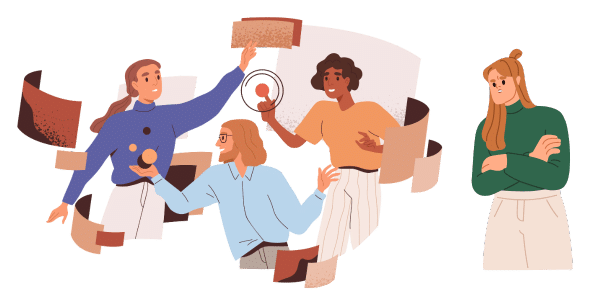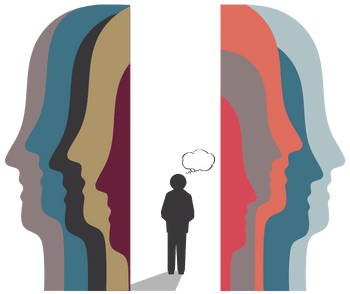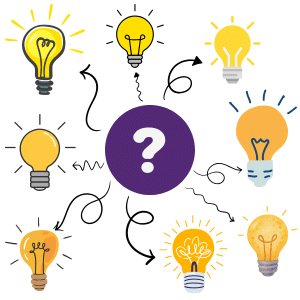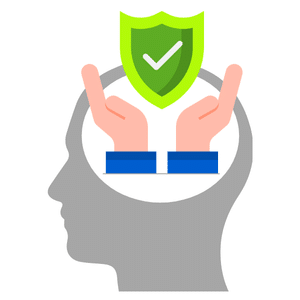Most organisational teams recognise the need for inclusion, but awareness and good intentions don’t automatically translate into action – it’s easy to fall into familiar patterns and habits, which can leave some colleagues feeling like outsiders who are unable to contribute fully or, even worse, unwelcome. The result? Lower engagement, less collaboration, and missed opportunities galore.

Awareness is a great starting point, but inclusive teamwork only comes to life and makes a real difference when it shows up in day-to-day actions. Perhaps unsurprisingly, the attitude and behaviour of leaders is extremely important, alongside the shared team practices.
Why inclusive teamwork matters
Research is clear: when people feel like they belong, they’re more motivated, more engaged, and more likely to stick around.
In fact, employees who feel they belong are 3.5 times more likely to be engaged (91% vs. 20%), according to research cited in Harvard Business Review. Similarly, Deloitte has reported that inclusive teams outperform their peers in team-based assessments by up to 80%, particularly because of the innovation and decision-making benefits that come from a diversity of perspective.
When it comes to making organisations more attractive places to work and unlocking performance improvements, the business case for inclusion is clear – and the Learning & Organisational Development teams we work with tell us that securing staff awareness and support for the idea of an inclusive workplace isn’t usually the difficult part. The challenge is getting staff to move from awareness to action – something which requires the building of specific skills and embedding of certain habits that foster trust, belonging and a welcoming environment.
The behaviours of inclusive teamwork & leadership
At the team level, inclusivity is not about grand gestures – it’s about everyday actions. Some of the behaviours that make the biggest difference include:

Self-awareness & management
Everybody needs to be aware of their personal biases, understanding how they might influence decisions at every scale, and taking steps to mitigate them. Leaders who role-model self-awareness set the tone for their teams, showing that reflection and accountability are part of everyday practice and not a one-off exercise.

Inviting (and considering) different perspectives
Leaders must invite contributions from everyone, showing curiosity about different viewpoints and recognising the value of diverse experiences. It’s easy to do a whip-round for ideas, but they must all be given the same weight, regardless of their source and especially if they challenge the status quo.
All team members must consider their “in” and “out” groups – where do they ‘sense check’ their plans? Who do they naturally turn to for input? Who gets invited into informal conversations, and why are certain people left out of the loop?

Calling it out
Equipping people with the tools and confidence to challenge exclusionary behaviours and become active bystanders. This not only protects individuals but helps reinforce cultural norms where respect and fairness are the standard.
Not every intervention will be dramatic (thankfully!) – often it’s as simple as prompting someone to think about how their actions or words might be perceived by colleagues from different backgrounds and with different experiences.

Creating ‘psychological safety’
Amy Edmondson’s pioneering work at Harvard Business School highlights that teams thrive when people feel safe to speak up, admit mistakes, and share ideas without fear of judgment. This sense of safety is a cornerstone of inclusive teamwork, but the concept of ‘psychological safety’ is only just entering the glossary of a modern team – they need support to understand what it is and how to bring it about.
Bridging the gap
From who gets invited to meetings, to whose efforts are credited, inclusion is built (or undermined) in the small decisions made daily and – often – subconsciously.
Insightful learning and impactful development play a vital role in bridging the gap between knowing and doing. Effective workshops help learners reflect honestly on their current practices, understand barriers to inclusion, and build the confidence to adopt new behaviours.
Our Inclusive Teamwork workshop is designed with this in mind. Delivered virtually or face-to-face, this two-hour session creates a safe, facilitated space where teams can:
- Reflect on what gets in the way of belonging
- Explore the behaviours that build inclusion and trust
- Learn practical tools for managing bias and speaking up
The focus is not just on awareness but on action – giving people the tools they need to bring immediate, positive change to their workplace and culture.
Inclusion is not a one-off initiative. It’s a commitment that needs to be embedded in how teams work together every day. When leaders and employees shift from awareness to action, the impact is transformative: higher engagement, stronger collaboration, and a culture where everyone feels they can contribute and thrive.